There is nothing more festive than visiting a Christmas Market in December – sipping mulled wine in the crisp winter air, browsing handmade gifts displayed in cute wooden chalets and enjoying wintery treats like roasted chestnuts and candy canes.
It really is a wonderful way to spread cheer and enjoy the season and, despite being of German origin, these festive markets are now held in many other countries around the world including the United Kingdom.
In fact, there are now hundreds to choose from around Great Britain alone, with London’s Winter Wonderland attracting more than 3 million people at its peak.
But, with this sheer volume of people, it’s worth considering what impact these festive events have on the environment.
Christmas Markets are actually thought to increase people’s average daily Co2 emissions by an extra 0.5kg, so you’d hope that all events are doing their bit to keep their carbon footprint as low as possible.
Christmas Markets in Germany, for example, have been asked to dim their lights and decorations this year in a bid to reduce carbon emissions – but what about the events that are hosted closer to home?
Well, at Independent Cottages, we have decided to find out which of the UK’s Christmas Markets are the ‘greenest’.
We analysed a variety of factors to determine which are the most sustainable including their decorations, energy use, vendor policies, transport recommendations and post-event waste.
Read on below to find out the results…
The ‘Greenest’ Christmas Markets In The UK
Manchester
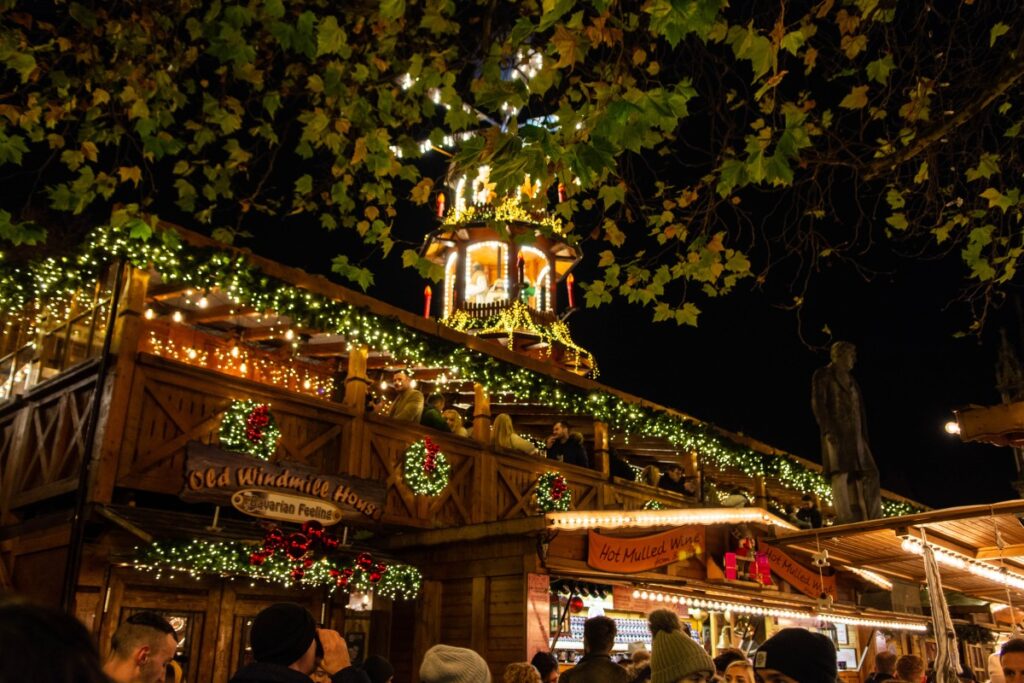
Sitting in the top spot for the ‘greenest’ Christmas Market in the UK is the Capital of the North, Manchester. The score the city achieved in the study was actually double that of 25% of the other cities included, thus highlighting the initiatives that it has in place to reduce its carbon footprint. Speaking of those initiatives, Manchester scored the highest marks available for its sustainable practices regarding decorations and energy use.
For example, all decorations used at the Christmas Market are made from organically-sourced raw materials and recycled aluminium, and chalets are made from wood that is sourced via the FSC (Forest Stewardship Council) to ensure timber comes from sustainable sources. When it comes to energy use, 91% of its lighting elements are Bioprint, which emits 10 times less than aluminium when produced.
Winter Wonderland in London
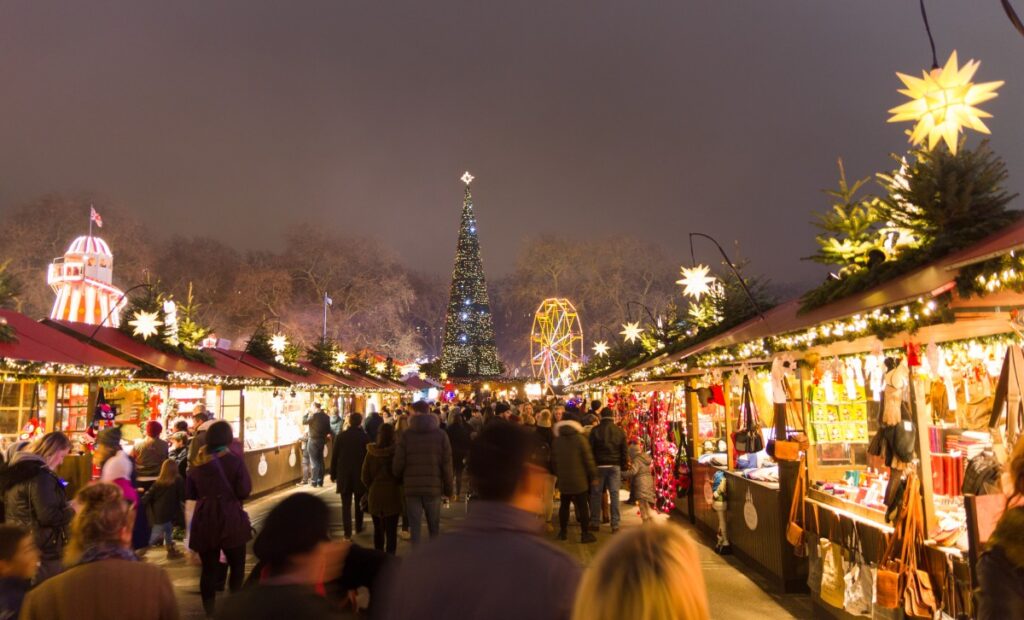
Taking the silver medal position for the ‘greenest’ Christmas Markets is London’s Winter Wonderland. Located in Hyde Park, the event is the biggest and most famous of all the Christmas markets in the Capital, originally opening over 15 years ago in 2006. When it comes to how sustainable such a large event is, Winter Wonderland scored admirably.
The nationally-known event scored particularly highly for it’s post event impact considering that no waste goes to landfill with all general waste being used for energy recovery. For example, waste oil from the Winter Wonderland catering stalls is collected and recycled into biofuel, and any pallets or reusable timber is donated to upcycling projects. What’s more, polystyrene and other single use plastics are banned and food waste is used for compost.
Birmingham
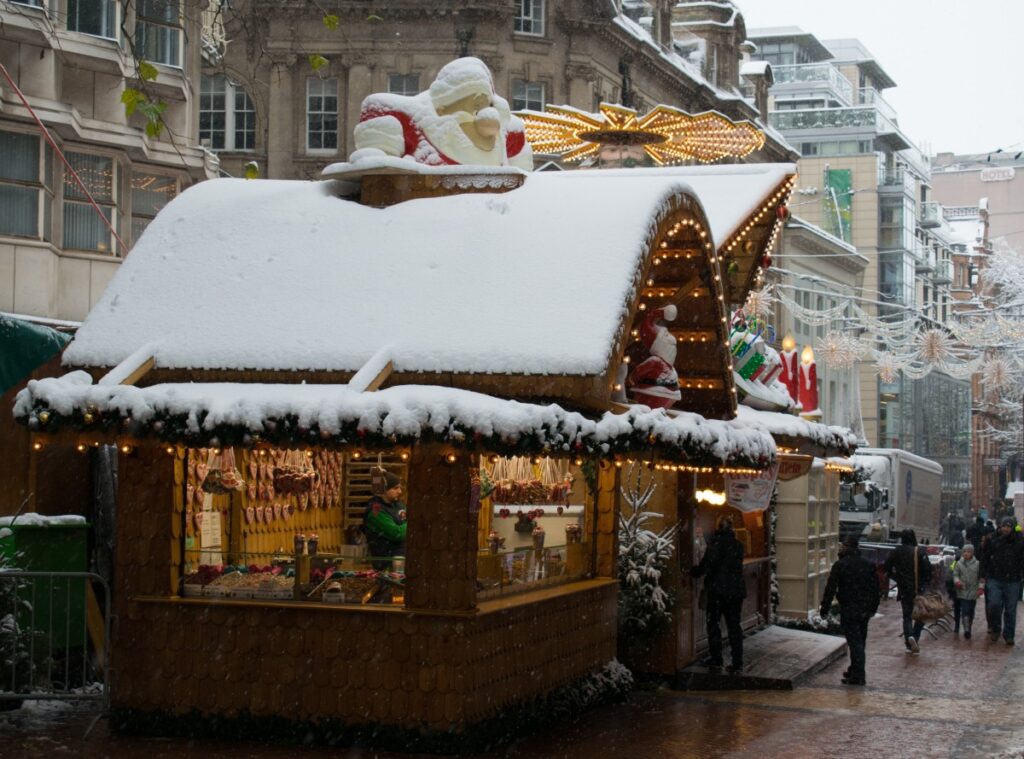
Rounding up the medal table, with bronze, is the UK’s biggest Christmas Market, held in Birmingham. The city’s market is actually the largest authentic German market in Europe, outside of Germany and Austria, and sees 5.5 million visitors attend. And similarly to Winter Wonderland, with increased size comes increased impact, right? Not necessarily.
Birmingham Christmas Market is particularly sustainable with the initiatives it has in place to support the local community. For example, unsold food items and unused ingredients are donated to charity, and the Christmas trees used at the event are given away to families in need.
Edinburgh
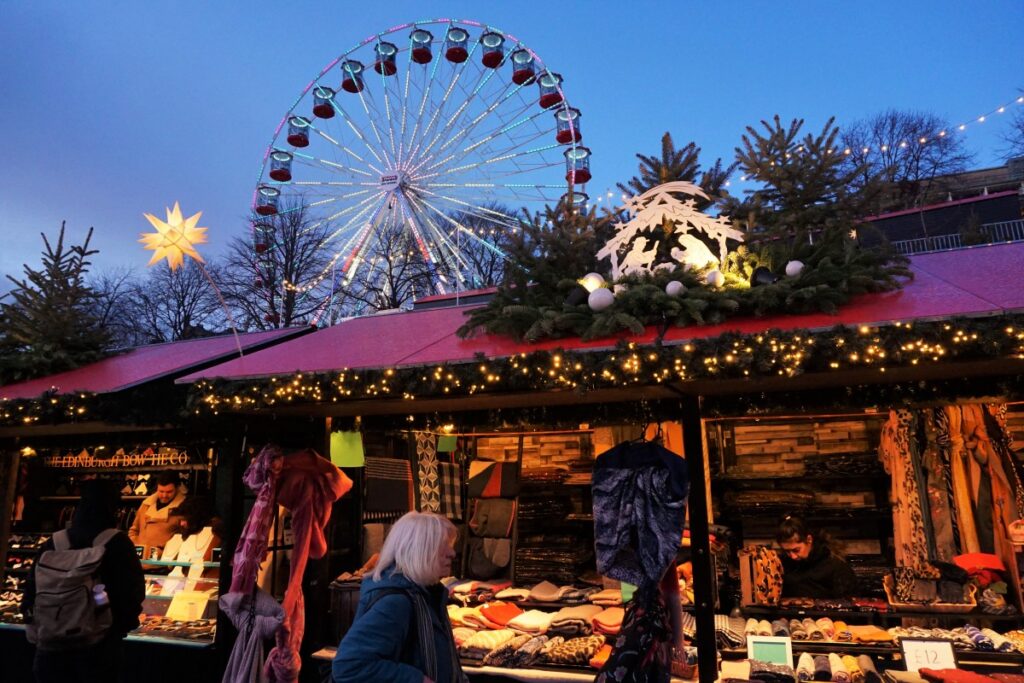
In fourth place is Scotland’s capital city, Edinburgh. The market is situated in the heart of the city meaning that the festive event has a backdrop of iconic sites including Edinburgh Castle, the Scott Monument, the Balmoral Hotel and Calton Hill.
And, when it comes to sustainability, Edinburgh Christmas Market enforces strict measures on vendors to ensure its carbon footprint stays as low as possible. For example, traders are only allowed to use biodegradable, eco-friendly plates and utensils, with the use of both polystyrene and single use plastics being completely banned at the event. The market also commits to using local suppliers and contractors only, both supporting local businesses and cutting down emissions on transport.
Middlesbrough
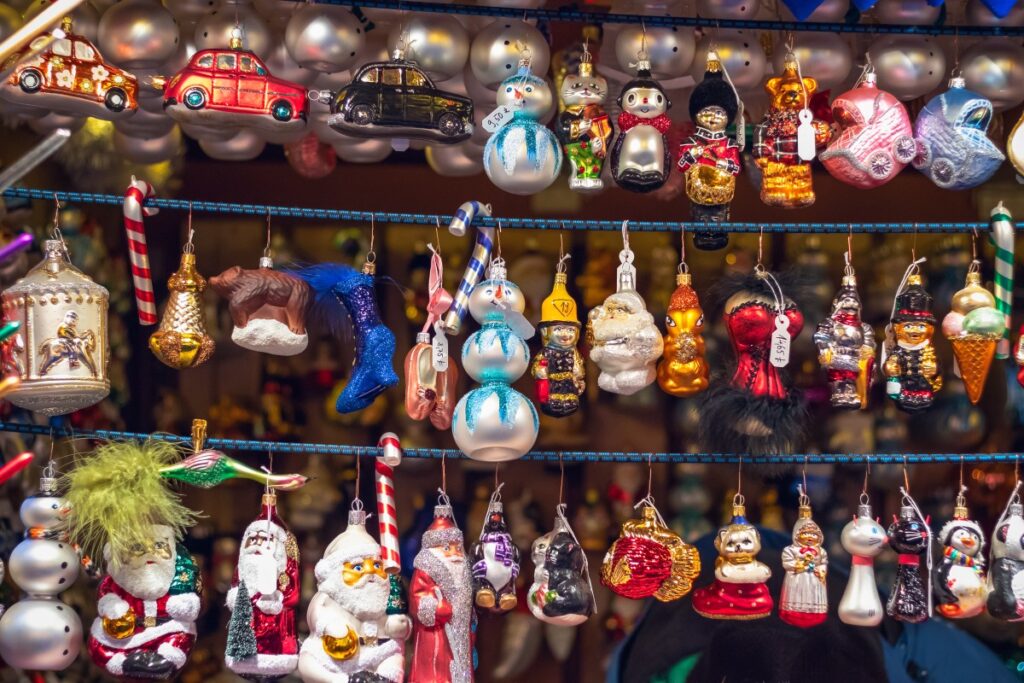
Rounding up the top five ‘greenest’ Christmas Markets in the UK is the North East’s Middlesbrough.
Unlike many of the other events, Middlesbrough Christmas Market does not use real trees for its main Christmas displays and instead recently purchased two artificial digital trees which they will use each year. What’s more, the energy used to power the event is impressive with all Christmas lights being LEDs and energy efficient, all glitter being biodegradable and generators being either bio or diesel (which still emits less than petrol).
Methodology
To find out the greenest Christmas markets in the UK, we first sourced a list of the 30 largest cities in the UK based on population.
Cities that either haven’t ever held a Christmas Market or aren’t holding one this year were omitted from the study and replaced by the next largest city that does/is hosting a market. Where cities had more than one Christmas Market, the largest was used.
We then analysed each city on the below factors:
- Decorations (fake or sustainably grown Christmas trees, reused decorations)
- Energy (Sustainable methods, biodegradable lights, LEDs, turned off at a certain time)
- Vendor Policies (policy of recyclable consumables, vegan food on offer, vendors that mention ‘handmade’, ‘local’ or ‘sustainable’ in their description)
- Transport (Increased bus routes, free public travel options)
- Post-event impact (compost, plastic recycling, charity, community etc)
We used a variety of credible sources to find data for each of the above categories and then ranked the countries from first to last based on each data point.
We then added the scores together to get a total score, before ranking the cities based on this overall, final score.
For cities that had a tied overall score, we used ‘Post Event Impact’ as the deciding factor, so whichever scored highest in this factor then scored higher overall.
Christmas Markets that showed no communication of sustainable practices were omitted from the study.
The full dataset is available upon request.
Sources include local council information and Christmas Market websites.
Note
It is important to mention that the study only looked at the 30 biggest cities in the UK that host a Christmas market so the Christmas Markets towards the bottom of this ranking are not necessarily the least sustainable in the UK.
It just outlines that they don’t have as many sustainable practices in place as other destinations and many do still have positive initiatives established. Cities that had no sustainable measures in place were omitted from the study.
